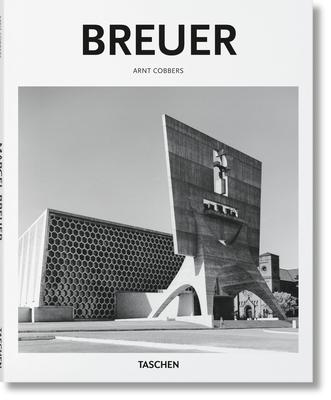In 1956, TIME magazine called him one of the defining "form-givers of the 20th century." Today, Marcel Breuer (1902-1981) remains a locus classicus of modernism for architects and designers alike. As a Bauhaus pioneer, even his earliest work was marked by a material restraint; the balance of texture, color, and shape; and a symbiosis of local and global, big and small, rough and smooth. In this essential introductory monograph, we survey Breuer's complete career through some of his most influential projects and ideas, from his landmark tubular furniture to the MoMA Research House to his innovation of "binuclear" housing, splitting living and sleeping areas into separate wings. Along the way, we follow Hungarian-born Breuer's journey to international acclaim, with featured projects from Germany, France, England, Switzerland, and across the United States contributing to his global status as a modernist maestro.

In 1956, TIME magazine called him one of the defining "form-givers of the 20th century." Today, Marcel Breuer (1902-1981) remains a locus classicus of modernism for architects and designers alike. As a Bauhaus pioneer, even his earliest work was marked by a material restraint; the balance of texture, color, and shape; and a symbiosis of local and global, big and small, rough and smooth. In this essential introductory monograph, we survey Breuer's complete career through some of his most influential projects and ideas, from his landmark tubular furniture to the MoMA Research House to his innovation of "binuclear" housing, splitting living and sleeping areas into separate wings. Along the way, we follow Hungarian-born Breuer's journey to international acclaim, with featured projects from Germany, France, England, Switzerland, and across the United States contributing to his global status as a modernist maestro.